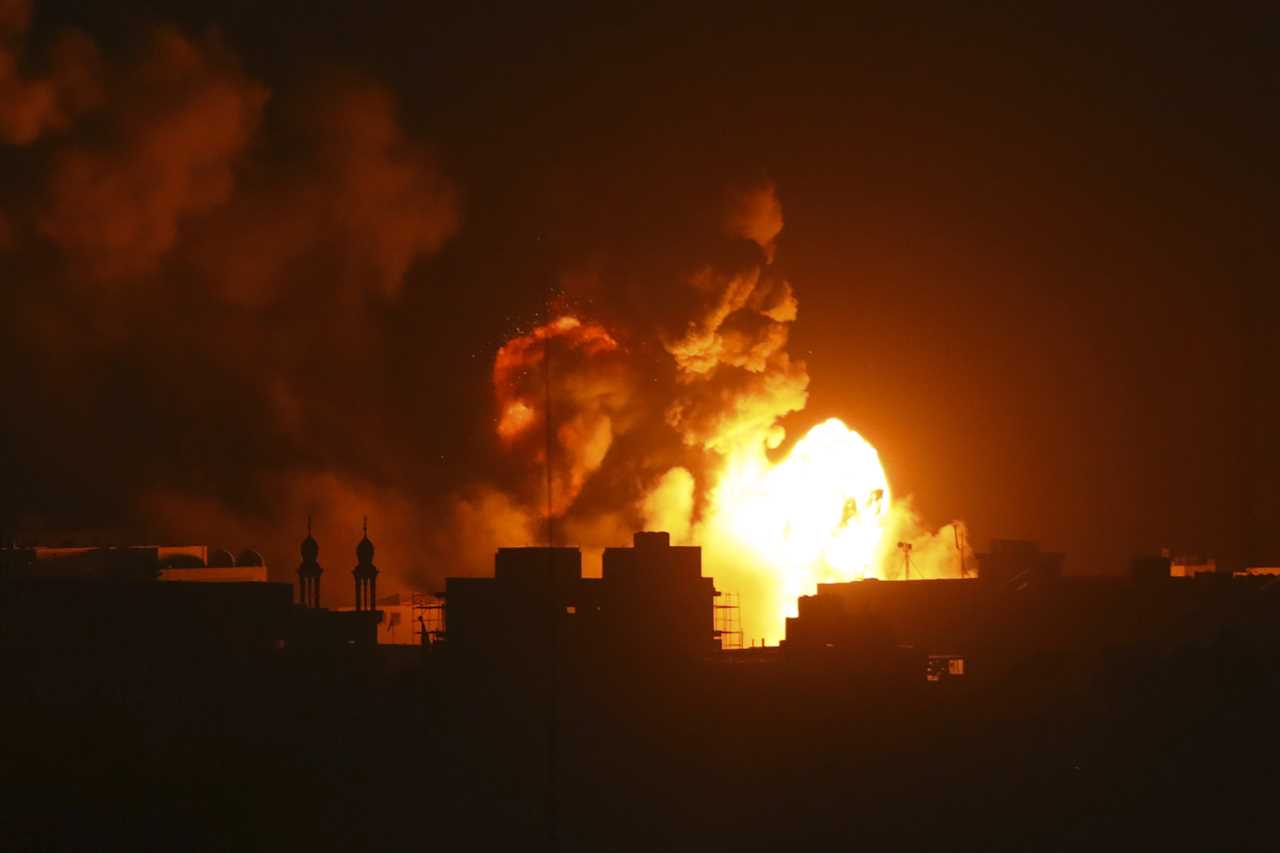
The brutality of the Oct. 7 Hamas attack, and the ruthlessness of the Israeli response, has made some observers wonder if this time, the severity of the violence will finally force Israelis and Palestinians to come up with a real and lasting solution to the conflict over Gaza.
The problem is, all previous wars between Israel and Hamas have ended up with the status quo ante, and there’s no convincing reason to think this time will be any different. Wars between Israel and Hamas in 2008, 2008-09 and 2014 all ended in ceasefires that have done nothing to resolve the conflict. The result has been ongoing clashes, rocket fire on Israel, Israeli air strikes on Gaza and skirmishes between fighters, all of which have continually led to the killing of civilians.
A real change in the regional order requires either a political process between Israel and Hamas, or the complete destruction of the latter. Neither of these scenarios is likely, even now — unless diplomats choose to reject this old pattern and replace it with something new.
Why are we likely to end up in the same pattern this time?
First, despite the fact that it can claim a devastating number of lives, Hamas does not pose an existential threat to Israel. The State of Israel is a fully integrated member of the international community. It has the region’s most powerful military and a nuclear arsenal, and an American security umbrella. Under these conditions, the most that Hamas can do is engage in intermittent “small” attacks against Israel. All it wants is to survive the current Israeli response so it will be back in position to strike again.
This means that there is no way for Hamas to force Israel to make real concessions. The most that Hamas has achieved is to exchange kidnapped Israelis for Palestinian prisoners in Israel. But that doesn’t do anything to tamp down the specific disputes between the two.
Second, neither side has expressed any interest in a genuine political process. Hamas has built its reputation and very purpose on its ability to “resist” Israel. Further, Hamas’ oppressive rule in Gaza has deprived it of the legitimacy it once had as a serious political alternative to Fatah, leaving its legitimacy tied only to such resistance.
Research has shown insurgent groups only agree to participate in a diplomatic process if they are allowed to share in governing. Yet for Hamas to do so would be to give up its emphasis on violence, its sole reason for existence. The most Hamas has been willing to consider has been negotiations toward a ceasefire or an exchange of captives and prisoners — and that only through an intermediary.
For its part, no Israeli government from anywhere on the political spectrum has ever indicated any interest in negotiating with Hamas. It, too, has only been willing to consider talks limited toward ceasefires or the release of hostages.
Third, the status quo ante has been beneficial for the political right in Israel, in the sense that having Hamas in Gaza absolves Israel of having to negotiate with the moderate Fatah over division of the West Bank. So long as a terrorist organization exists on its borders these governments have argued that a peace process is impossible, and no Palestinian state is viable.
There are reports that Israeli Prime Minister Benjamin Netanyahu himself has been clear about this strategy. He has been quoted as saying in 2019 that anyone who opposes a Palestinian state should strengthen Hamas at the expense of Fatah. A manager who is most skilled at maintaining the status quo rather than a visionary or statesman who can make bold moves toward peace, Netanyahu is not likely to disrupt a system that has allowed him to avoid making concessions in a peace process. A militarized response that degrades Hamas’ capabilities is a way for him to claim that he has taken action against the organization without addressing concessions on statehood that Netanyahu is clearly unwilling to deliver. The price of Hamas terrorism is one he has been willing to pay.
If the scale and brutality of Hamas’ attack this time has convinced Israel that the status quo ante really is untenable, Hamas would have to be militarily defeated. But doing so would be extraordinarily difficult — which is the fourth reason change is unlikely.
Israel’s primary responses to previous Hamas attacks have been the use of air power. But air strikes alone are not enough to eliminate the organization. Even if Israel could demolish all of the above-ground structures that Hamas could use, the organization still has its network of tunnels beneath Gaza that it could use as a base of operations to launch a prolonged guerilla war.

The only sure way to defeat Hamas is through a sustained ground invasion and long-term occupation. This would require the Israel Defense Forces to move slowly and methodically through both open spaces and urban areas to capture or kill Hamas fighters and leaders. This will put Israeli lives at risk — a risk that Netanyahu has tended to avoid — and lead to more Palestinian casualties, both civilians and militants. The longer such an operation continued, the more likely Israel would be subject to increasingly heavy international pressure to end the operation, probably before the military objective is met.
Fifth, defeating Hamas on the battlefield would be inadequate to change the status quo because the conditions that have strengthened it over the years would remain in place. Studies of past counter-insurgency and counter-terrorism campaigns all stress the importance of long-term planning regarding the post-war settlement.
It does not appear that Israel has a plan for stabilizing and governing Gaza after the war. Neither the Israeli public nor Israeli leaders have any appetite for administering a territory so damaged from years of war and blockade.
A possible alternative is a coalition of actors including some combination of Arab states, Fatah, some European states, the Arab League and the United Nations. But the taint of colonialism would probably stick to the endeavor. Palestinians are also unlikely to view this as anything other than demeaning.
Perhaps the best alternative is a multi-stage process, each phase building on the previous one. The first stage would be Israel convincing Hamas that its destruction really is imminent unless it is willing to engage in a political process, by a relentless military campaign that targets Hamas in Gaza and a diplomatic initiative to convince the international community to undercut Hamas’ finances and to stop hosting Hamas leaders.
Such a process would require that the Israeli government reduce its commitment to expanding settlements in the West Bank and stop allowing right-wing Jews to march toward the Dome of the Rock, one of the holiest Islamic sites that sits atop the Western Wall, one of the holiest places for Jews. It would also require that Israel remove the blockade on Gaza. All of these policies convince Palestinians that Israel has no interest in peace. The removal of the blockade could be done piecemeal, in tandem with or in response to steps taken by Hamas to end its commitment to violence and improve governance of Gaza.
Despite a few calls for such a process among Israelis and Palestinians, doing so in the immediate aftermath of Hamas’ murderous violations and the ongoing deaths of thousands in Israel’s bombing campaign does not seem possible. But ultimately, the sheer number of deaths since Oct. 7 might finally be enough to make leaders and the public on both sides accept both the need and the hope for change — if everyone involved understands the deeper causes that have actually hobbled past attempts at peace.
----------------------------------------
By: Brent E. Sasley
Title: Opinion | How the Israel-Gaza Conflict Can Avoid Ending in Stalemate
Sourced From: www.politico.com/news/magazine/2023/11/07/israel-gaza-conflict-stalemate-00125649
Published Date: Tue, 07 Nov 2023 05:00:00 EST
Did you miss our previous article...
https://consumernewsnetwork.com/politics-us/how-kentucky-could-elect-a-president






